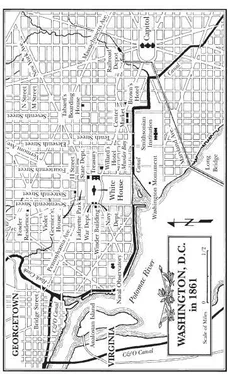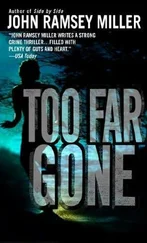John Miller - The First Assassin
Здесь есть возможность читать онлайн «John Miller - The First Assassin» весь текст электронной книги совершенно бесплатно (целиком полную версию без сокращений). В некоторых случаях можно слушать аудио, скачать через торрент в формате fb2 и присутствует краткое содержание. Жанр: Исторический детектив, на английском языке. Описание произведения, (предисловие) а так же отзывы посетителей доступны на портале библиотеки ЛибКат.
- Название:The First Assassin
- Автор:
- Жанр:
- Год:неизвестен
- ISBN:нет данных
- Рейтинг книги:3 / 5. Голосов: 1
-
Избранное:Добавить в избранное
- Отзывы:
-
Ваша оценка:
- 60
- 1
- 2
- 3
- 4
- 5
The First Assassin: краткое содержание, описание и аннотация
Предлагаем к чтению аннотацию, описание, краткое содержание или предисловие (зависит от того, что написал сам автор книги «The First Assassin»). Если вы не нашли необходимую информацию о книге — напишите в комментариях, мы постараемся отыскать её.
The First Assassin — читать онлайн бесплатно полную книгу (весь текст) целиком
Ниже представлен текст книги, разбитый по страницам. Система сохранения места последней прочитанной страницы, позволяет с удобством читать онлайн бесплатно книгу «The First Assassin», без необходимости каждый раз заново искать на чём Вы остановились. Поставьте закладку, и сможете в любой момент перейти на страницу, на которой закончили чтение.
Интервал:
Закладка:
“He said he opposed secession and civil war, but that he could not stand against Virginia. ‘If the Union is dissolved and the government disrupted, I shall return to my native state and share the miseries of my people and draw my sword on no one except in defense,’ he said. It was a neat little speech, and he seemed genuinely moved by the offer that was made to him.”
“Did he resign his commission?” asked Rook.
“I fully expect him to resign now. I suppose Secretary of War Cameron will receive a note from Arlington in a day or two stating as much.”
By now a few other officers in the building had gathered around the doorway to Scott’s room. They all wanted to hear the account too.
“Did you tell him he was crazy?” asked Locke.
“I told him he was making the greatest mistake of his life. He is a strong-minded man. It is one of the qualities in him that I like best, and one of the reasons why I thought he was ready for this duty.”
Scott noticed the small crowd. “Let us talk of this no more. No good can come of it,” he said, waving his wrist at the men. They took it as an order to disperse. Locke stood up and shut the door. Rook was annoyed that Locke did not put himself on the other side of it.
“Amid this bad news, today we have received some good news,” said the general. “I was heartened by the five companies of troops that arrived from Pennsylvania this morning.”
“It certainly makes the defense of Washington an easier task,” said Rook. “I suppose we could repel an organized attack now.”
“That depends on the size of the attacking force,” said Scott. “I think we need between four and five thousand men in order to defend against any troops raised by Maryland or Virginia in the near future. We are far short of that goal. We simply require more men, and I hope they come soon. I know some are on the way. They cannot get here quickly enough.”
“I have not received any reports of hostile armies assembling nearby,” said Rook.
“Nor have I, but we shouldn’t wait for that to start. If the Virginians raise an army before we prepare to defend ourselves, it will be too late. Just the other day, I heard the president remark that if he were General Beauregard, fresh from firing on Fort Sumter, he would try to take Washington immediately. It probably wouldn’t take much to defeat us here. I just hope they don’t think of it.”
“I believe we’ll be ready for them,” said Rook. “We’ll need more men, but they’re on the way. Virginia will need time too.”
“Colonel, do you know where you are?” asked Scott.
“Excuse me?”
“Do you know where you are?”
“I’m in your office, sir.”
“And where is that?”
Rook had no idea what the general was getting at. He selected his words slowly and carefully, like a man facing a prosecutor during a deposition. “I’m in the city of Washington.”
Scott smiled to ease the nerves of his colonel. “You are in the Winder Building, of course. Do you understand the significance of that?”
“I suspect that I do not.”
“You will recall what happened in 1814. During our war with Britain, the enemy landed an army in Maryland and marched toward Washington. Our troops met them at Bladensburg, just a few miles from here. The soldiers of our country were routed, and Washington was laid bare before the redcoats. They burned the Capitol and torched the White House. If you look closely at those buildings, you can still see the burn marks in a few places. It was a terrible humiliation.”
Rook knew this. He said nothing and let the general continue.
“The American general in command that day at Bladensburg was William Winder. This building, which now houses the headquarters of the United States Army, is named for him-the man who is more responsible than anyone else for our country’s most notorious military defeat.”
Scott let the story settle in Rook’s mind. Then he rammed home his point: “I may sit in a building named for Winder, but I will not follow in his footsteps. On my watch, Washington won’t fall.”
Rook said nothing when Scott was done. He thought that perhaps he should have paid more attention to his history professor at West Point.
“I knew about Winder and the Battle of Bladensburg,” offered Locke.
Rook balled his fists. He wished he could slug Locke.
“Let’s just make sure history doesn’t repeat itself,” said Scott. “That reminds me, how goes the conversion of the Old Capitol?”
The general was referring to the three-story brick structure just to the east of the actual Capitol. It had been built quickly as a place for Congress to meet after the fire in 1814. For a decade, lawmakers met within its walls on the corner of Maryland Avenue and First Street. Since their departure, the building had served as a school and a boardinghouse. The federal government had just repurchased it for use as a prison.
“It will be able to accept prisoners any day now.”
“Excellent. Now, tell me about the arrangements for the new soldiers from Pennsylvania.”
There was a shortage of places to put the troops-the government had mustered several federal buildings into service. The Pennsylvania soldiers would stay in the Capitol. The Patent Office and the Treasury were also available.
“I presume that putting soldiers at the Treasury won’t interfere with our other plans for that building,” said Scott.
“That’s correct,” said Rook. “The Treasury remains the place where we’ll send the president and his cabinet in the event of an attack on Washington. It’s quite a large structure. The basement has enormous storage capacity.”
“I wish we didn’t have to use the Capitol.”
“I agree, General. But you know we don’t have many locations to put soldiers on such short notice. I’m intending to put Jim Lane’s men at the White House when they arrive.”
“Very well. That ought to ease some of your concerns about security.”
“I certainly don’t think we will go the way of General Winder, sir. Our vulnerabilities are elsewhere.”
“Not this subject again,” sputtered Locke.
Scott held up his hand to silence Locke. “Colonel Rook, let me make myself perfectly clear: I do not want to discuss your conspiracy theories anymore. Do not raise them with me again.”
The man who called himself Jeff Davis looked groggy when he finally arrived in the lobby at Brown’s. It appeared as though he had just gotten up, run a comb through his hair, and stumbled downstairs. Although it was the middle of the afternoon, none of his companions was around. He took a table away from the hotel’s front door, in a corner.
Clark sat about a dozen feet away, sipping a cup of tea and pretending to study a newspaper whose entire contents he had already read twice. He avoided looking directly at Davis, who might become suspicious if he recognized Clark from the previous evening. At the moment, Davis’s powers of observation appeared to be dull. Judging from the way he kept rubbing his head, he was fighting a hangover.
Within half an hour, the men who had arrived with Davis wandered into the lobby and joined him at the table. Clark had trouble overhearing their conversation, partly because they were not saying a lot. They worked their way through a meal, mostly in silence. The food seemed to improve their disposition. By the time they were done eating, they looked more like the group that Clark originally had spied upon.
Davis was clearly the leader. He spoke the most and laughed the loudest, and the others appeared to defer to him. They talked about the fall of Fort Sumter and the possibility that Maryland might secede-it was obvious that they supported the attack in Charleston and hoped that legislators in Annapolis would withdraw from the Union. “That would leave Washington all by itself, like a peach that’s ripe for plucking,” said Davis. His gang roared its approval.
Читать дальшеИнтервал:
Закладка:
Похожие книги на «The First Assassin»
Представляем Вашему вниманию похожие книги на «The First Assassin» списком для выбора. Мы отобрали схожую по названию и смыслу литературу в надежде предоставить читателям больше вариантов отыскать новые, интересные, ещё непрочитанные произведения.
Обсуждение, отзывы о книге «The First Assassin» и просто собственные мнения читателей. Оставьте ваши комментарии, напишите, что Вы думаете о произведении, его смысле или главных героях. Укажите что конкретно понравилось, а что нет, и почему Вы так считаете.












